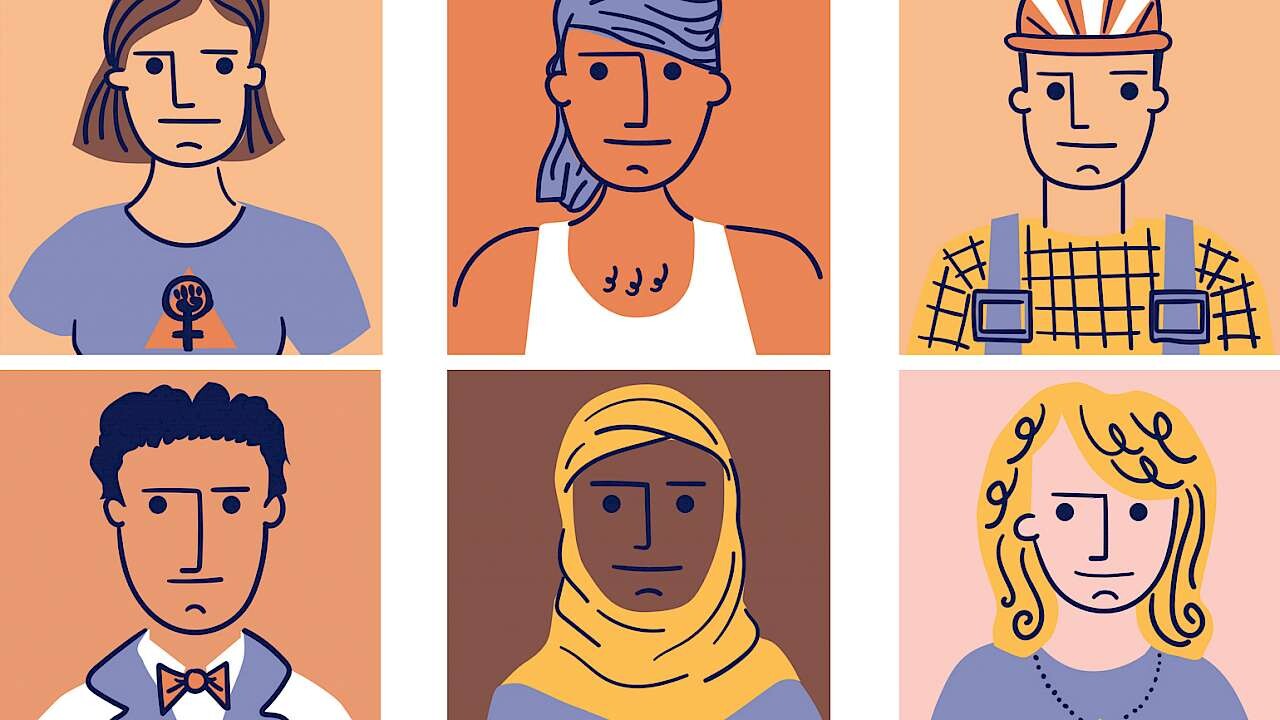Forum 2. Please reflect on the following statements and share your opinion:
"Stereotypes are usually negative"
"We disregard stereotypes when we consider them offensive towards our own culture. If we consider stereotypes flattering, we accept them as true"
Stereotypes are defined by the Cambridge Dictionary as “a set idea that people have about what someone or something is like, especially an idea that is wrong”. Therefore, is the first idea or thought we get from a group of people, culture, or anything we can actually imagine. It is believed that there are positive and negative stereotypes, though as the previous statement says: “Stereotypes are usually negative”. Even if it is not wrong, and in most scenarios stereotypes are negative, some people still believe in positive stereotypes. These types of stereotypes are the ones we believe are not harmful to our culture, race, or country. A positive stereotype refers to a subjectively favourable belief held about a social group. Relating to the previous quote: "We disregard stereotypes when we consider them offensive towards our own culture. If we consider stereotypes flattering, we accept them as true", there is not much to say except that, the majority of the time, it is true. However, are stereotypes ever truly flattering? Stereotypes usually are a big generalization of people, race, or country, among others. Now, even though we can consider some stereotypes flattering, I do not think that they are ever as positive as we believe. Firstly, it is important to state that I believe that it is impossible to say that someone is totally detached from stereotypes. Unconsciously, a part of us always tends to generalize, at a higher or lower degree, as even indirectly we have grown up surrounded by them. We grew up with the idea that “men are stronger than women”, “women are caring”, “Asians are good at maths” “boys aren’t as good listeners as girls”, “boys don’t cry” and more. Though it might seem most of them come from a sexist approach (and we would not be wrong to believe so), those are still stereotypes. And when they relate to cultures, even if they seem positive such as “Asians are good at maths”, “Hispanics are passionate”, or “Black people are good at sports”... They are not as positive as one might believe. Ultimately, stereotypes do not have into consideration individuals, as it is a generalization. Every individual is a different world, and regardless of what one believes, they do not necessarily feel alright with being stereotyped, even if it is a positive one. It can be tiring to be seen as a whole when in reality you are just you. It depersonalizes the individual; it can make them feel not really seen for who they are, but judged for who they are believed to be. Not to say that the previous statement about accepting true flattering stereotypes and disregarding negative stereotypes is not true; again, it is. We tend to always choose favorable comments towards us and, overall, it is better to find positivity in that that is trying to be projected to us as something with negative connotations. However, let’s not forget that positive stereotyping is not as positive as we believe, and not everyone is keen on them. Likewise, and more on a personal note, I believe stereotyping can somehow show a superiority from one person to another. For example, saying: “I know that you are like this because everyone from the same race or country as you are like this”. Well… no you do not. You do not know me as an individual, so you do not really know more about me than myself. As part of a culture that has been surrounded by negative stereotypes, as well as positive ones, I simply do not pay attention to them. It is true that being positively stereotyped is better, and we prefer them; that’s just how we should take it, as something flattering rather than harmful. But as previously said, not everyone takes positive stereotypes as something flattering, it will mostly depend on the individual. And even positive comments might offend someone to some extent, so we need to be careful. So, to sum it up, can stereotypes ever be considered truly flattering? Not so sure. What about you? What do you think about your own culture’s or country's positive stereotypes? Stop and think about it for a second; are they really that positive?
References:
Effects of Stereotypes on Personal Development. (2023, February 23). Gouvernement Du Québec. https://www.quebec.ca/en/family-and-support-for-individuals/childhood/child-development/effects-stereotypes-personal-development/definition-stereotypes#:~:text=Stereotypes%20are%2C%20in%20fact%2C%20%E2%80%9C,with%20them%20and%20treat%20them
James, C. (n.d.) Stereotyping and its consequence for racial minority youth. Ontario Human Rights Commission. https://www.ohrc.on.ca/en/race-policy-dialogue-papers/stereotyping-and-its-consequence-racial-minority-youth
Morin, A. (2022, February 03). Harmful Psychological Effects of Racial Stereotyping. Verywell Mind. https://www.verywellmind.com/harmful-psychological-effects-of-racial-stereotyping-5069394

Comments
Post a Comment